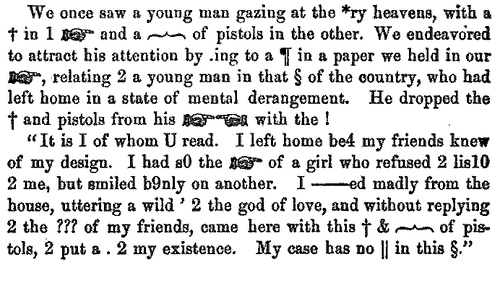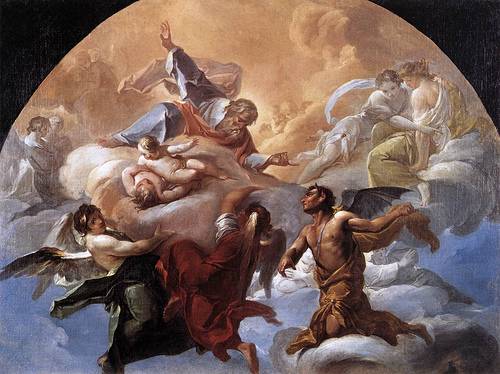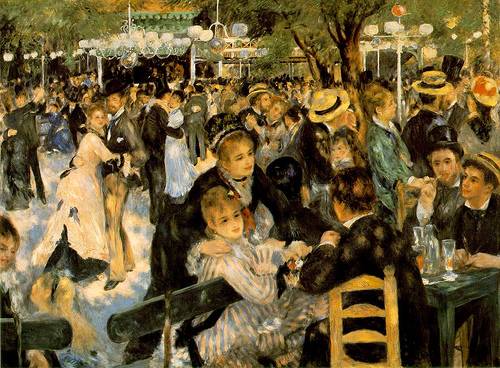
“I understand you undertake to overthrow my undertaking.”

“I understand you undertake to overthrow my undertaking.”
“It is perhaps a more fortunate destiny to have a taste for collecting shells than to be born a millionaire.” — Robert Louis Stevenson
Account of Samuel Bisset, “famous for teaching quadrupeds to perform very remarkable actions,” given in John Platts, Encyclopedia of Natural and Artificial Wonders and Curiosities, 1876:
Being a man of unwearied patience, three young cats were the next objects of his tuition. He taught those domestic tigers, to strike their paws in such directions on the dulcimer, as to produce several tunes, having music-books before them, and squalling at the same time in different keys or tones, first, second, and third, by way of concert. … He procured a leveret, and reared it to beat several marches on the drum with its hind-legs, until it became a good stout hare. … He taught canary-birds, linnets, and sparrows, to spell the name of any person in company, to distinguish the hour and minute of time, and play many other surprising tricks; he trained six turkey cocks to go through a regular country dance.
“In the course of six months’ teaching, he made a turtle fetch and carry like a dog; and having chalked the floor, and blackened his claws, could direct it to trace out any given name in the company.”

— Charles Carroll Bombaugh, Gleanings for the Curious From the Harvest-Fields of Literature, 1890
Sit with a blank white wall to your right. Have a friend sit facing you. Hold up a hand mirror between you, positioned so that your left eye sees your friend’s face and your right eye sees a reflection of the wall. Now sweep your hand in a circular motion across the wall. Your friend’s face will disappear except for his eyes and mouth, like the Cheshire Cat in Alice in Wonderland.
This is worth the trouble to try, as the effect is startling. Your friend’s disembodied eyes may float before you for five seconds if he doesn’t blink or smile.
History’s 10 deadliest natural disasters:
Six of the 10 occurred in China. See also Death Tolls.

Complementary palindromes:
DO, O GOD, NO EVIL DEED, LIVE ON, DO GOOD!
LIVE, O DEVIL, REVEL EVER, LIVE, DO EVIL!
He who has not lost a thing has it.
You have not lost horns.
Therefore you have horns.
William Lyon, a strolling player, who performed at the theatre in Edinburgh, and who was excellent in the part of Gibby, the Highlander, gave a surprising instance of memory. One evening over his bottle, he wagered a crown bowl of punch, a liquor of which he was very fond, that next morning, at the rehearsal, he would repeat a Daily Advertiser from beginning to end. At the rehearsal, his opponent reminded him of his wager, imagining, as he was drunk the night before, that he must certainly have forgot it, and rallied him on his ridiculous bragging of his memory. Lyon pulled out the paper, desired him to look at it and be judge himself whether he did or did not win his wager. Notwithstanding the want of connection between the paragraphs, the variety of advertisements, and the general chaos which goes to the composition of any newspaper, he repeated it from beginning to end, without the least hesitation or mistake.
— Cabinet of Curiosities, Natural, Artificial, and Historical, 1822

Most expensive paintings (sale prices expressed in dollars and adjusted for inflation):
Japanese industrialist Ryoei Saito bought both #4 and #5 in 1990 and then announced he would have them burned during his cremation. Perhaps fortunately, he later ran into financial difficulties and was forced to sell them.